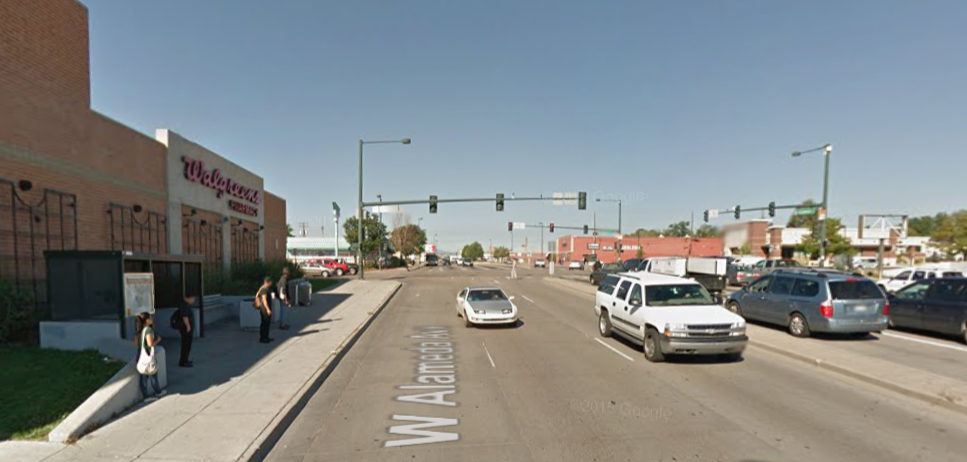WalkDenver Wants to Help Residents Take First Step Towards a Car-Lite Life

How easy is it to walk a mile? Bike to the store? Take transit to work instead of driving? If you live in West Denver, probably not as easy as it should be. Still, if you drive most places, it might be easier than you realize.
That’s why WalkDenver just launched Project Shift. It’s a program that aims to help West Denver residents ditch their car more often and go car-lite or, if they’re ready, try living without a personal car altogether. The project is twofold: helping residents use active transportation options that already exist, and teaching them how to advocate for more.
“If you live in downtown maybe you don’t think a mile is actually that far, and really you don’t even have to walk a mile to get mostly what you need,” said WalkDenver’s Jessica Vargas, who is coordinating the program. “But if you live in one of these West Denver neighborhoods, the closest grocery store is four miles away. That’s a really quick drive, normally… and if you’re not used to walking and biking, it wouldn’t even enter your mind as being an option.”
Vargas knows that feeling. Growing up in Southern California, “people just drove everywhere,” she said. As a result, Vargas didn’t learn to ride a bike until age 24. But Project Shift aims to combat the cultural norm of car ownership for residents of West Colfax, Villa Park, Sun Valley, Barnum West, Barnum, and Valverde.
Participants will attend “10 upbeat and interactive sessions featuring thought leaders from around the city to empower you and to transform perceptions about personal transportation,” according to the project’s website. Sessions will be held on Tuesday evenings and Saturday mornings.
Of course, lots of people don’t walk and bike because the built environment makes it an unwelcoming hazard. Project Shifters will come up with an official ask for local policy makers, based on what they learn, that would make going car-lite easier. In between sessions they’ll create tactical urbanism projects with their neighbors — maybe a “walking school bus” or an intersection mural.
“They’re gonna do neighborhood projects, they’re gonna speak with some sort of policy maker, maybe their council member, to actually start talking about why people aren’t walking in their neighborhood,” Vargas said. “Do they not feel safe? Do they not have sidewalks? How can we fix that? Because the more voices we have, that’s what initiates that change.”
Each participant gets a copy of Jeff Speck’s “Walkable City,” a Fitbit to gauge walking activity, and RTD transit passes. They’ll record their vehicle miles traveled, too, to track progress.
WalkDenver has 25 spots — the organization says its’ competitive — so fill out the application if you live in West Denver and are ready to rely on your car less.


